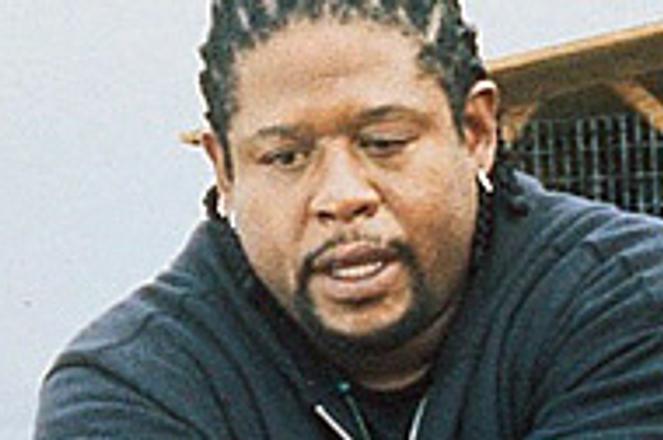Forest Whitaker as Ghost Dogphoto: Courtesy of Artisan
Ghost dog: the Way of the Samurai
Starring: Forrest Whitaker
Running time: Two hours
Rating: 9 out of 10
"America's a kind of throwaway culture that's made of this mixture of different cultures," Jim Jarmusch once told Rolling Stone magazine. "To make a film about America, it seems logical to me to have at least one perspective that's transplanted here from some other culture, because ours is a collection of transplanted influences."
In his most recent effort, transplanted cultural influences again tell Jarmusch's story: Ghost Dog is an African American living in New York City who follows Hagakure: The Book of the Samurai.
Not to forget one's master is the most fundamental thing for a retainer... Every day Ghost Dog contacts his master - an Italian-American Mafioso named Louie who once saved his life - through carrier pigeons he keeps in his shack on top of an apartment building. When a bird returns with an order, Ghost Dog performs the requested assassinations.
Every day one should meditate on his own death... and every day one should consider himself dead... This is the substance of the way of the samurai. When Ghost Dog is spotted during a hit, Louie's Mafia boss becomes enraged and orders his death. Louie spills everything he knows, which isn't much; the two have met only twice in person. Louie can only reveal that Ghost Dog executes untraceable hits and is paid every year on the first day of autumn.
The unfortunate turn of events highlights the strange relationship between the two men. Louie respects and fears Ghost Dog yet is ultimately loyal to his crime family, informing Ghost Dog his life is in danger but doing little to help. Ghost Dog, on the other hand, is completely loyal to Louie, as the code of the samurai dictates, but does not have much affection for him. He even seems to enjoy the duty of shooting Louie in the shoulder and thereby exhonorating him from guilt.
One should make his decision in the space of seven breaths... Finding his birds slaughtered, Ghost Dog sets out to take revenge, stealing a car and heading to the Mafia boss's country home. What follows is his reckoning not only with his would-be assassins, but with the principles guiding his life.
Attired in dark, hooded garments, Forest Whitaker plays Ghost Dog straight and low-key, with a touch of wistfulness. He has plenty of space to work with under Jarmusch's dark, realistic direction and sparse script. None of the film's conversations or set-ups are wasted; those that seem like throwaways resonate as the film's themes of destiny, spirituality, and individuality build. Dialogues with an inner-city cherub, cartoon clips and an encounter with redneck poachers flesh out the urban fairy tale.
The inevitable High Noon scene (Ghost Dog makes the reference for us) between master and retainer demonstrates how skilfully the movie's bizarre premise has been handled. Very few filmmakers could create a Western style climax involving a black man and an ageing Italian Mafioso that is neither ironic, facile nor melodramatic.
Two characters at different times in the film tell Ghost Dog: "Ancient Japan was a pretty weird place." And mysterious. Ghost Dog: The Way of the Samurai, like Jarmusch's other films (Dead Man, Down by Law), is a reminder that the same holds true of the world we inhabit.
It is said that the spirit of the age is something to which one cannot return...it is important to live the best out of every generation...


